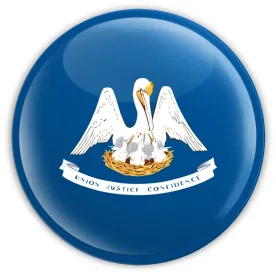This first post in this series focuses on the obvious first question to address: are we dealing with a Louisiana sales tax issue or a Louisiana use tax issue (or perhaps both)? Which tax is applicable, and which Louisiana statutory tax provisions are to be utilized?
The interplay of sales tax and use tax in Louisiana has long created confusion among taxpayers and collectors alike. The recent case of Songy v. Bayou Bridge Pipeline, LLC, 2020-0860 (La. App. 1 Cir. 02/19/21); 2021 La. App. LEXIS 186 (“Bayou Bridge”), decided late last month by the Louisiana First Circuit Court of Appeal, is no exception and in fact perfectly illustrates such confusion regularly faced by taxpayers … and regularly presented to the Jones Walker SALT Team. Thus, a discussion of this case is, in turn, a perfect way to kick off a multi-part blog series addressing various issues we see regularly relating to the intersection/interaction/interplay of Louisiana’s sales tax provisions and corresponding use tax provisions. While these two taxes are meant to be complementary in nature, their statutory provisions are indeed different, and their application can have different results. We will delve into these differences.
This first post in this series focuses on the obvious first question to address: are we dealing with a Louisiana sales tax issue or a Louisiana use tax issue (or perhaps both)? Which tax is applicable, and which Louisiana statutory tax provisions are to be utilized? The Bayou Bridge case will be our “case study” example for such discussion.
We will then follow up with subsequent posts in this series on other interesting sales tax vs. use tax topics commonly presented to us in Louisiana, such as: taxability issues and applicability of exemptions and exclusions; sourcing issues; state and local credit issues; the interplay of state-level statutes vs. local ordinances; as well as contract/invoice drafting and interpretation.
Now, on to our “case study” and corresponding initial discussion of which tax actually applies – sales tax or use tax.
Whether a particular interstate or inter-parish transaction triggers a sales tax or use tax (and the resulting applicability of the sales tax laws vs. the use tax laws) still seems to, at times, trip up taxpayers (and collectors). Although these are complementary taxes with many required similarities, the actual taxing provisions are in fact different and can have different outcomes when applied to the facts at issue.
Louisiana’s state and local sales tax is generally imposed on the sale at retail of tangible personal property in a taxing jurisdiction. See, e.g., La. R.S. 47:302(A)(1). The sales tax statutes define “sale” as any transfer of title or possession, or both, of tangible personal property for a consideration. See La. R.S. 47:301(12).
Louisiana’s state and local use tax, conversely, is generally imposed on the use, consumption, distribution, or storage for use or consumption of tangible personal property in a taxing jurisdiction. See, e.g., La. R.S. 47:302(A)(2). Established Louisiana case law has also now made clear that Louisiana state and local use tax does not apply to the storage of tangible personal property in the state (or a particular parish) solely for use in a different state (or a different parish). See, e.g., Scientific Drilling Intl., Inc. v. Meche, 2009-1120 (La. App. 3rd Cir. 2/3/10), 29 So.3d 1283, writ denied, 2010-511 (La. 4/30/10), 34 So.3d 298; Frank’s International, LLC v. Robinson, BTA Doc. No. 10050D (La. Bd. Tax App. 12/11/18).
However, importantly, the first inquiry when analyzing a sales/use tax issue should be: which transaction are we actually talking about – the sale of the tangible personal property or the subsequent use of the tangible personal property? Sales and use taxes are transaction taxes; thus, the tax is imposed on the transaction itself, rather than the property. As a result, the incidence of taxation will be on the sale itself (sales tax) or the subsequent use itself (use tax). It is therefore critical to make clear which specific transaction is being analyzed and what specific tax outcome results regarding that specific transaction.
In the recent case of Bayou Bridge, the taxpayer Bayou Bridge Pipeline, LLC (“Bayou Bridge”) purchased pipe from an East Baton Rouge pipe manufacturer, Stupp Corporation (“Stupp”), for purposes of constructing a pipeline. Stupp, however, transported a certain amount of the pipe at issue to its other facility in West Baton Rouge prior to transferring title or possession of that pipe to Bayou Bridge while the pipe was in West Baton Rouge. When Stupp billed Bayou Bridge for the pipe, the bill included Louisiana state sales tax, but did not include any parish sales tax; thus, Bayou Bridge accrued and self-remitted West Baton Rouge Parish tax on the transaction directly to the West Baton Rouge Parish collector. After the sale transaction, Bayou Bridge also paid Stupp for subsequent storage of the pipe in West Baton Rouge for a year while awaiting permits, before Bayou Bridge subsequently transferred a majority of the pipe out of West Baton Rouge and installed the pipe (i.e., “used” the pipe) in Iberville Parish.
The Iberville Parish sales/use tax collector filed suit against Bayou Bridge and West Baton Rouge Parish, alleging that Bayou Bridge improperly remitted local sales/use tax to West Baton Rouge Parish and failed to remit local sales/use tax to Iberville Parish on its use of the pipe in Iberville Parish. Cross-motions for summary judgment were then filed by all parties involved.
Iberville Parish and West Baton Rouge Parish were then left to “fight it out” between themselves as to which parish was legally entitled to the tax amounts at issue.
The trial court ultimately granted Bayou Bridge’s request to be removed from this case and controversy, because Bayou Bridge was entitled to a credit for any amount of sales/use taxes erroneously paid to West Baton Rouge Parish instead of Iberville Parish (or, conversely, a credit for any amount of sales tax properly paid to West Baton Rouge Parish to offset any subsequent use tax that may be owed to Iberville Parish). See La. R.S. 47:337.15(A)(3); La. R.S. 47:337.86(A). Iberville Parish and West Baton Rouge Parish were then left to “fight it out” between themselves as to which parish was legally entitled to the tax amounts at issue. The trial court ultimately concluded that Iberville Parish was entitled to the tax money, as the parish in which the pipe was actually used.
On appeal, however, the First Circuit disagreed, reversing the trial court’s judgment and ruling that West Baton Rouge Parish was in fact actually the correct local taxing jurisdiction entitled to the tax amount at issue. In making this determination, the Court had to first determine the initial “gatekeeper issue” of which transaction was being addressed in this case and which type of tax was actually at issue (the sales tax or the use tax).
One of Iberville Parish’s arguments in the case was based on the fact that no local tax was actually charged and collected by the seller, Stupp, on the sale of the pipe; Bayou Bridge instead voluntarily self-remitted tax to West Baton Rouge Parish. Iberville Parish asserted that the self-remitted tax was erroneously remitted to West Baton Rouge because the pipe was not stored in West Baton Rouge for use in West Baton Rouge (impliedly asserting that the amount of tax self-remitted by Bayou Bridge was a local use tax). Citing to and relying upon the decision in Scientific Drilling, the Iberville Parish collector argued that, since the pipe at issue was not actually used in West Baton Rouge, the mere storage of the pipe in West Baton Rouge was not enough to create a “taxable moment” subject to use tax in that parish. Iberville Parish argued that, instead, use tax should have been imposed (and the taxable moment actually occurred) at that situs where the pipe was in fact actually used – i.e., Iberville Parish.
The First Circuit, however, rejected this argument. The Court explained that the first gatekeeper inquiry should be whether the transaction (and resulting tax) being analyzed is a sale transaction (with corresponding sales tax) or a use transaction (with corresponding use tax). The Court explained that the facts were clear that title and possession of the pipe at issue were transferred from Stupp to Bayou Bridge while the pipe was in West Baton Rouge Parish; thus, a “sale” occurred in West Baton Rouge Parish. The Court, therefore, determined that it was first required to address whether a local sales tax applied to that sale transaction. As part of this analysis, the Court also essentially concluded that the self-remitted tax paid by Bayou Bridge was a local sales tax (rather than a local use tax). As a result, the Court concluded that Iberville Parish’s reliance on Scientific Drilling and the corresponding “storage for use” test was misplaced, because that test only applied to the use tax. In Louisiana, the local sales tax applies in the locality where the “sale” itself occurs, regardless of whether the actual “use” of the tangible personal property by the purchaser actually ultimately takes place in that same locality. According to the Court, the proper West Baton Rouge tax at issue for discussion was a sales tax rather than a use tax. Therefore, the use tax sourcing rules and requirements articulated in Scientific Drilling were simply not applicable.
As exemplified by Bayou Bridge, determining whether or not the facts and transaction at issue trigger a sales or use tax is a critical first step in determining everything else, including whether, and where, the tax is ultimately owed.
Other interesting sales/use tax issues abound in the Bayou Bridge case, including the interplay of provisions regarding: sourcing of transactions; applicability of exemptions/exclusions; credits for taxes paid to other taxing jurisdictions; and state statutes vs. local ordinances. As noted above, we will be following up with additional posts in this series, identifying and discussing these additional issues, among others, which seem to perplex taxpayers (and collectors) when trying to comply with the current interacting sales and use tax laws in Louisiana. We also plan to use the new Bayou Bridge case as an example where applicable in those subsequent posts.
Stay tuned for more to come in this series!




 />i
/>i
